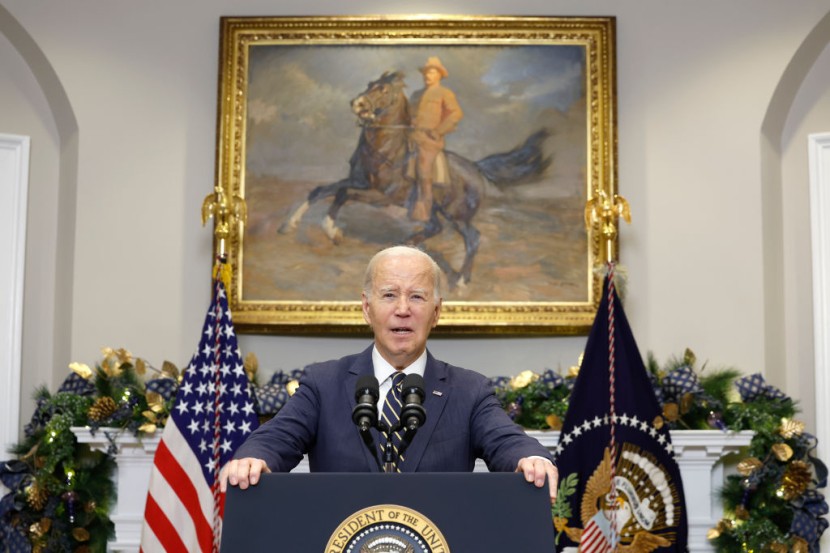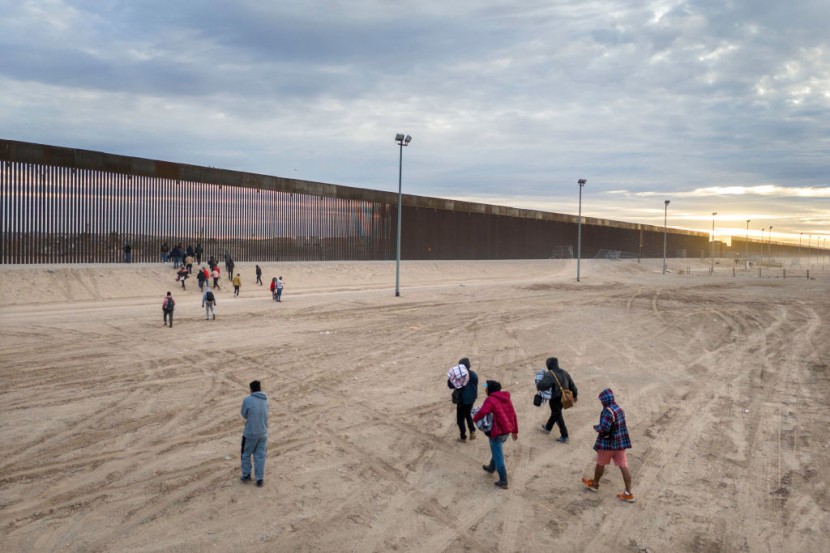The most-awaited U.S.-Mexico border and Ukraine deal was finally unveiled by the Senate on Sunday, Feb. 4. The negotiations, which were led by U.S.senators Kyrsten Sinema (Arizona), James Lankford (Oklahoma), and Chris Murphy (Connecticut), led to a 370-page bill.

Now, U.S. President Joe Biden is urging Congress to pass this bipartisan deal. This is the latest effort of POTUS to increase the pressure on House Republicans.
But, will this U.S.-Mexico border and Ukraine deal really become law? Here are the latest details.
Joe Biden Urges Congress To Pass US-Mexico & Ukraine Deal
U.S. President Joe Biden said that the bipartisan agreement was established because the U.S. Senate has been working with the Biden Administration closely.
"Now, House Republicans have to decide. Do they want to solve the problem? Or do they want to keep playing politics with the border?" said the American leader via Politico.
According to BBC News, the U.S. Senate, which is led by Democrats, will schedule a vote on the new U.S.-Mexico border and Ukraine deal in February's first-week ends.
Unfortunately, a senior House Republican said that the proposed deal was already doomed before it could become law.
"Let me be clear: The Senate Border Bill will NOT receive a vote in the House," said House of Representatives Majority Leader Rep. Steve Scalise.
Before the deal advances, it needs to have at least 60 votes from the 100-member Senate. However, experts said that since there's widespread opposition among House Republicans, it is unlikely that the bipartisan deal will become law.
Aside from them, some Democrats could also be against the deal. Right now, House GOP is still seeking stricter rules against asylum seekers who are entering the United States.
Read also: Migrant Crisis: Greg Abbott Defends Texas' Border Strategy, Announces Plan To Expand Efforts
What US-Mexico Border & Ukraine Deal Includes

The new U.S.-Mexico border and Ukraine deal is expected to become the largest immigration overhaul if it becomes law.
James Lankford explained that this deal will move the U.S. from its current "catch & release" system to a new one where immigrants and migrants will be detained and deported.
Aside from this, here are other significant changes that the new bipartisan agreement includes:
- The new federal authority will mandate a complete shutdown of the U.S.-Mexico border.
- Stricter consequences for illegal crossings.
- Fast-tracked decisions on asylum cases.
- Limited humanitarian parole.
- Building a new border wall.
Aside from these, the new deal will also support a $60 billion aid for Ukraine in its war against Russia. It also aims to send $14 billion in security assistance to Israel.
© 2025 HNGN, All rights reserved. Do not reproduce without permission.








